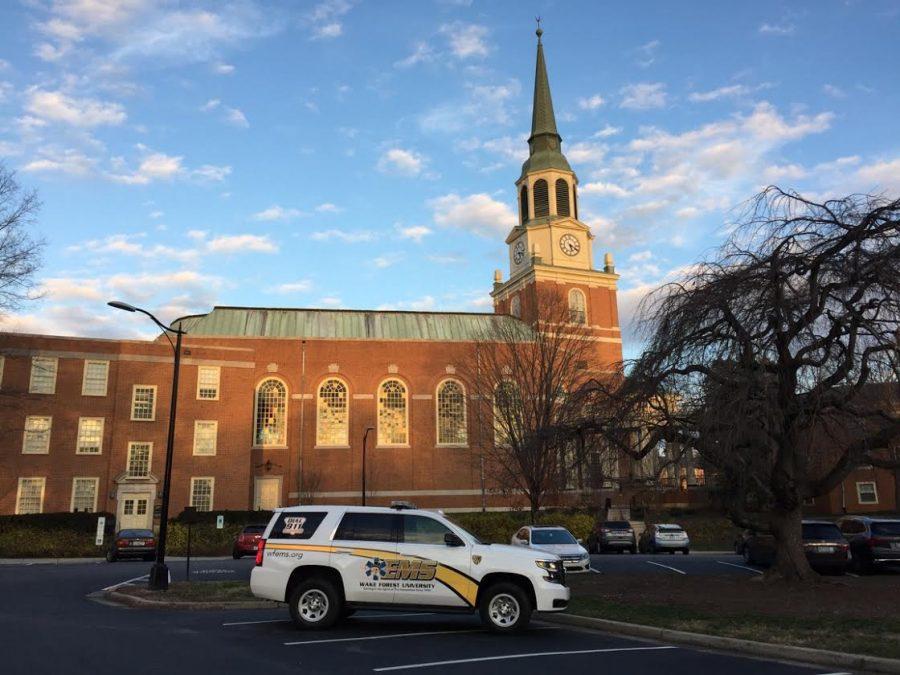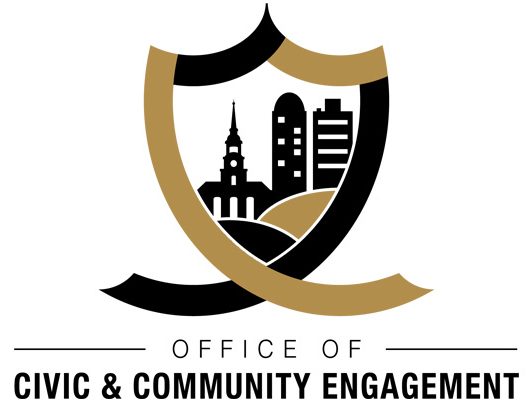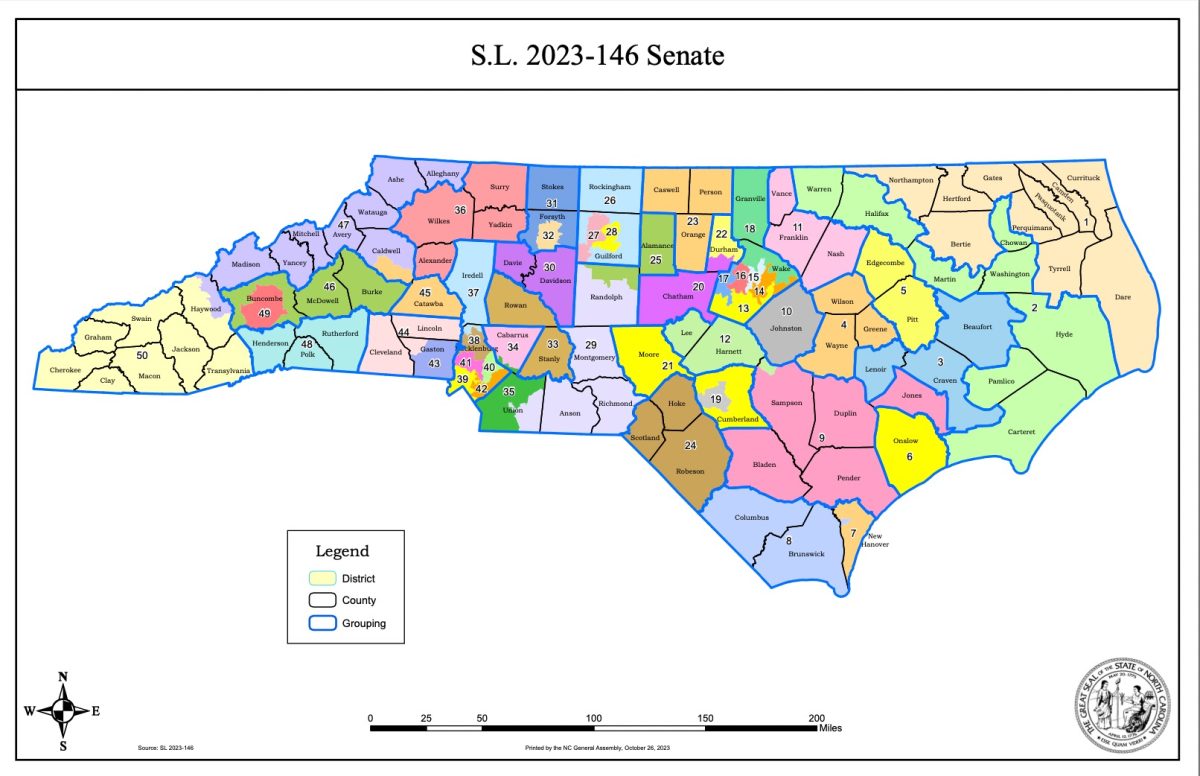Wake Forest Emergency Medical Services (WFEMS), which has provided care to the campus community since 1996, recently received an upgraded vehicle to assist them in efficiently serving the campus.
After meeting with the Wake Forest Board of Trustees, WFEMS was granted the new Chevy SUV to help the organization better provide effective basic life support to the Wake Forest community.
“While our old vehicle got the job done, it was slightly outdated and not fully functioning in some aspects, such as a siren and occasional engine issues,” said Equipment Lieutenant Cy Fogleman. “We are very lucky to have this new vehicle which will allow us to assist Wake Forest students, faculty, staff and visitors 24/7 in any medical emergency.”
Responding to anything from drug overdoses to sprained ankles, WFEMS provides services for a multitude of situations and members of the campus. Because the organization is operated by students, members of WFEMS may have unique relationships with their peers.
“I have had people that are my friends and that I have class with, so it is kind of an interesting relationship,” said Personnel Lieutenant Brad Feldman.
Members are honored to serve the campus and be in a position to help their fellow students in need.
“We often see students in really vulnerable and personal situations, so it is a different dynamic,” said WFEMS Publicity Lieutenant Ali Eakes. “But it has taught me a lot and has made me want to treat a patient as more of an individual.” Contrary to many assumptions, WFEMS responds to much more than alcohol and drug-related incidents. Last year, less than half of calls received involved alcohol-related incidents.
“A lot of people think we only respond to alcohol intoxication calls,” Eakes said. “We really get a lot of sports injuries calls, mental health emergencies, like panic attacks, ‘sick call’, like a fever or tummy ache.”
However, despite the frequency of other types of calls, WFEMS does still receive and respond to alcohol-related calls. The team trains for all types of emergency situations, but tailors emergency training toward incidents that are most likely to occur on a college campus.
“We definitely see the negative effects of the Wake Forest culture, like the work-hard, play-hard mentality,” Eakes said. “Still, not all of our calls are alcohol related, and I think the stress from Wake academics leads to other things like mental health emergencies and overdosing.”
WFEMS also holds educational services to students, staff and faculty in order to prevent illness and injury. “Training Day” takes place each semester, where the Forsyth County Emergency Services and other medical resources come together to train for not-so-common incidents, such as school shootings or mass-casualty atrocities.
“We always invite patients to help out with that so they can see what we do,” Feldman said.
WFEMS is always looking to grow their team. If not EMS certified, students can still participate in the ‘Riders Program’ where students are allowed to participate in EMS incidents, but not have patient contact.
If EMS certified, students can start as a probationary member, in which you are uniformed, “on duty,” and have patient contact before promoted to as a full member, in which he or she makes key medical decisions for each case or call.
Members are proud to be there for their fellow students in times of need and are constantly working to provide top-notch patient care.
“We as an organization strive to fulfill the motto ‘Pro Humanitate,’” Fogleman said. “This is more than a motto to members of WFEMS, it a lifestyle.”





















